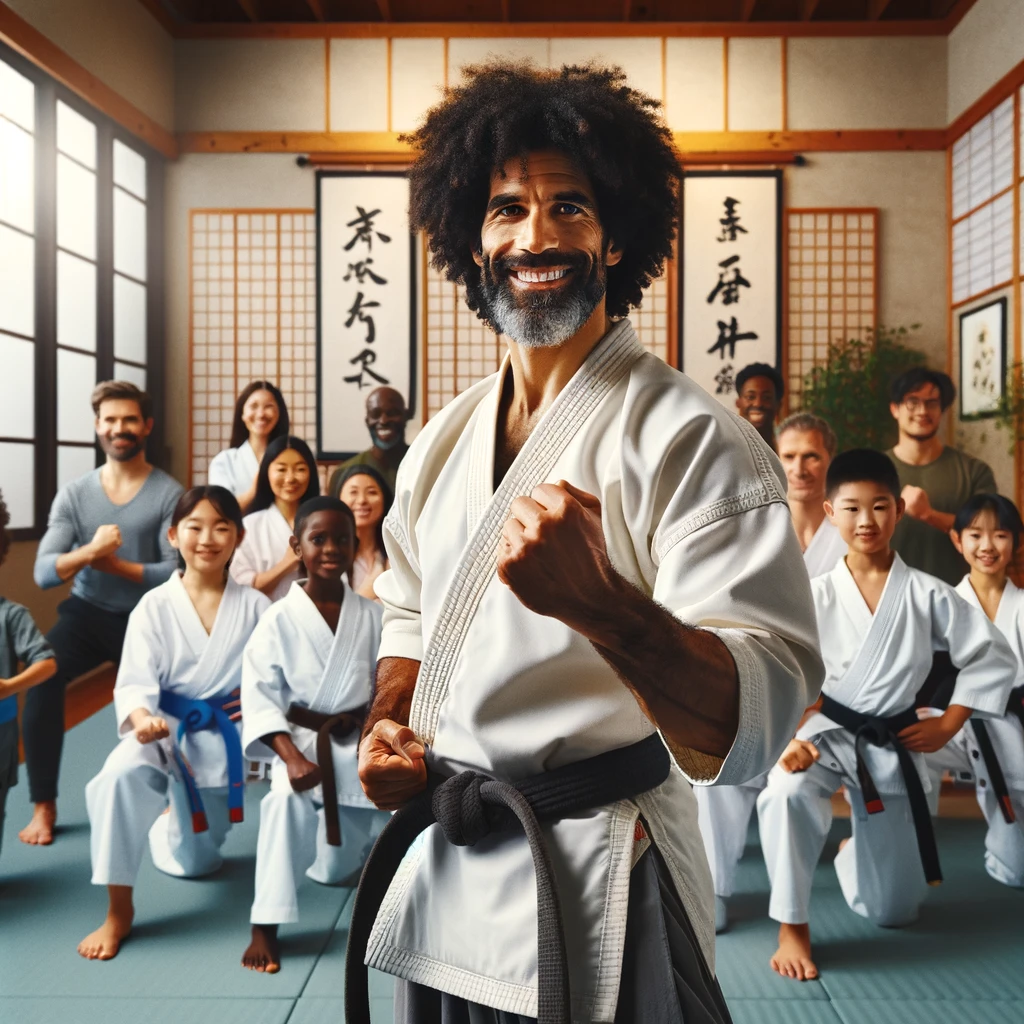Congratulations, martial arts enthusiast! You’ve taken the first step towards finding the perfect Karate dōjō. As you embark on this journey, it’s important to remember that not all dōjō are created equal, and that there is no such place as the perfect dōjō!
Finding a right fit is crucial, and this guide will help you navigate the process with confidence.
1. Finding Your Fit
In the world of martial arts, there is no one-size-fits-all approach. What may seem too gentle or too intense at first glance could be the perfect fit for you. The same applies for a club that is very strong or sports or combat-oriented. As you explore potential dōjō, consider their teaching style, philosophy, and atmosphere. Don’t be afraid to ask questions, such as “SafeSport” certification or a similarly accredited program, and observe a class before making a decision. It’s essential to align the dōjō’s philosophy with your personal goals and values to ensure a fulfilling experience.
2. Location, Location, Location
Just like in real estate, location is key when choosing a dōjō. Look for a dōjō that is conveniently located near your home or workplace. This will make it easier for you to attend classes regularly, which is essential for progress. The environment and facilities of the dōjō can also impact your training experience, so consider these factors when making your choice.
3. Beware of Contracts
No one needs to have a legal financial obligation for an activity they no longer enjoy, can commit to, or afford. While most dōjō require some form of financial commitment, be cautious of contracts that lock you in for an extended period. Look for flexible options that allow you to make changes if your circumstances change.
Business is not personal and every club or dojo has to pay their utilities, insurance and rent however every club member attends, to become a competent martial artist. Make a confident and well informed decision before locking into a “Black Belt Club” type contract, or what-ever flavor the a contract has been labeled.
4. Background Checks
When choosing a dōjō, it’s important to ensure that the instructors and owners have undergone the often overlooked background check of Martial Arts teachers and or owners. There’s nothing wrong with being cautions. This helps to ensure a safe and secure environment for all students. Check for certifications such as “SafeSport” or similar accreditation.
Over the years, coaches and leaders of such programs like gymnastics, swimming, tennis, scouting, yoga and karate have been identified as having unacceptable behaviors. To date, there are no broad state nor federal regulations or requirements for coaches (and Sensei) to submit their fingerprints and have an FBI background check. In a blind study, even convicted felons were asked if they would allow their children to train or be educated by a coach or mentor with a previous felony and the answer was a unanimous “NO.”
Today, most notable sport and all Olympic organizations have a program to vet the criminal backgrounds of teachers, coaches, volunteers, referees and owners. The USANKF (the exclusive representative for karate to the US Olympic committee) has made available just such a resource. The USA Olympic committee website, TeamUSA includes the National Governing Body (NGB) that represent all five combat sports of the Olympic movement including:
In addition, when vetting the background of your scouted dojo owner or instructors, take a moment to look up the leaders of the club on sex offender reporting websites such as Megans Law in California.
5. The Instructor Matters Most
The instructor is the heart and soul of any dōjō. Look for an instructor who not only has the technical skills but also the ability to connect with students. Research their credentials and reputation within the martial arts community, so again, look for the instructor or club that fits you. Review any relevant (and legitimate) teaching credentials. Ask a friend or another sports fitness professional if the instructor is savvy or well informed pertaining to their style, kinesiology, and sports training. The instructor’s role in fostering a positive and supportive learning atmosphere cannot be overstated.
6. Resources for Vetting
The USANKF (the exclusive representative for Karate to the US Olympic committee) offers resources for vetting instructors and dōjō owners. Visit the USA Olympic committee website, TeamUSA, for more information on background checks and accreditation. Take the time to utilize these resources to ensure the credibility of the dōjō and its staff.
7. Conclusion
Finding the right Karate dōjō is a personal journey that requires careful consideration. By following these guidelines and trusting your instincts, you can find a dōjō that not only teaches you the art of Karate but also becomes a community where you can grow and thrive.
To explore all organizations represented by Team USA, visit their website at www.teamusa.org. Remember, your dojo should be more than just a place to practice Karate—it should be a community where you can grow and thrive.

